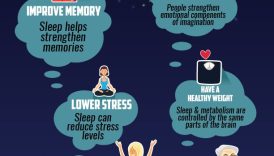Unleashing the Power of Positivity for a Healthy Lifestyle

The Impact of Positivity on Physical Health
Positivity plays an integral role in various aspects of our lives, particularly in physical health. Building on the notion that a positive mindset can profoundly affect how we feel and function, it is essential to delve deeper into two significant areas: boosting our immune system and improving heart health.
- Unleashing the Power of Positivity for a Healthy Lifestyle
- The Impact of Positivity on Physical Health
- Boosting Immune System
- Improving Heart Health
- The Benefits of Positivity on Mental Well-being
- Reducing Stress Levels
- Enhancing Mental Clarity
- Developing a Positive Mindset
- Practicing Gratitude
- Cultivating Self-Compassion
- Positive Relationships and Social Connection
- Nurturing Supportive Friendships
- Strengthening Family Bonds
- Incorporating Positivity into Daily Habits
- Mindful Meditation Practices
- Engaging in Physical Activity for Mental Health
- The Role of Positivity in Longevity and Aging
- Promoting Healthy Aging
- Enhancing Quality of Life in Older Adults
Boosting Immune System
When it comes to defending the body against illnesses, positivity appears to work wonders. Research has shown that a positive attitude can enhance immune function, allowing the body to resist infections more effectively. For example, individuals who engaged in positive thinking and stress management practices reported fewer illnesses and quicker recoveries. A few ways positivity can boost the immune system include:
- Reduction in Stress Hormones: Positive emotions can lower levels of cortisol, the stress hormone that can weaken the immune system.
- Enhanced Resilience to Illness: Studies suggest that optimistic people tend to be more resilient when faced with health challenges, leading to quicker recoveries.
- Social Support: Maintaining a positive outlook often encourages stronger social connections, which are associated with improved health outcomes.
Improving Heart Health
Embracing positivity doesn’t just enhance immunity; it also has a remarkable impact on heart health. Studies have consistently shown that those with a positive mindset have healthier cardiovascular systems. Here’s how positivity helps:
- Lower Blood Pressure: Positive thinking can lead to lower blood pressure, reducing the risk of heart disease.
- Decreased Risk of Heart Attack: Research links optimism to a lower likelihood of having heart attacks or experiencing heart-related issues.
- Healthy Lifestyle Choices: Individuals who maintain a positive outlook are more likely to engage in regular physical activity and follow heart-healthy diets.
Incorporating positivity into daily routines not only nourishes the mind but also lays a strong foundation for a healthier body. Through consistent practice, it is possible to witness physical transformations that stem from a cheerfully optimistic approach to life.
The Benefits of Positivity on Mental Well-being
After exploring how positivity impacts physical health, it’s equally vital to consider its profound effects on mental well-being. A positive mindset not only fosters resilience and strength but also significantly contributes to reducing stress levels and enhancing mental clarity.
Reducing Stress Levels
Life can be filled with stressors, but adopting a positive perspective can act as a buffer. When individuals focus on the brighter side of their situations, they often find their stress levels dramatically decrease. Here are some of the ways a positive attitude can minimize stress:
- Change in Response to Challenges: Viewing challenges as opportunities rather than threats allows individuals to navigate stressful situations more effectively.
- Improved Coping Mechanisms: Harvard research indicates that positive people employ healthier coping strategies, such as seeking social support and engaging in creative activities, rather than unhealthy habits like overeating or substance abuse.
- Physical Relaxation: Positivity can trigger physiological responses, such as decreased heart rates and lower cortisol levels, making you feel more calm and collected.
Enhancing Mental Clarity
In addition to reducing stress, positivity enriches mental clarity, unlocking the potential for more innovative thinking and problem-solving. For instance, when feeling positive, our brains operate more efficiently, leading to clearer thoughts. Consider these impacts:
- Improved Focus: A positive mindset allows individuals to devote their attention more fully to important tasks, reducing distractions from negative thoughts.
- Creative Problem Solving: With enhanced mental clarity, people tend to approach issues with a fresh perspective, often leading to innovative solutions.
- Increased Motivation: Positivity can fuel determination and ambition, inspiring individuals to pursue their goals vigorously.
Incorporating positivity into daily life is a transformative journey. By focusing on its benefits to mental well-being, individuals can cultivate a healthier mindset that ultimately leads to a happier and more fulfilling life.
Developing a Positive Mindset
Building on the mental benefits of positivity, developing a positive mindset is essential for fostering overall well-being. Two powerful strategies for cultivating this mindset are practicing gratitude and cultivating self-compassion.
Practicing Gratitude
Gratitude is more than just a fleeting feeling; it’s a transformative practice that can shift our perspectives dramatically. By focusing on the positives in our lives, we create a habit of appreciation that can diminish negativity over time. Here are some effective ways to incorporate gratitude into daily life:
- Gratitude Journaling: Spend a few minutes each day writing down three things you are thankful for. This simple act can rewire your brain to focus on abundance rather than scarcity.
- Expressing Gratitude Practice: Take time to verbally thank friends, family, or colleagues. Sharing your appreciation can strengthen relationships and foster positivity.
- Mindful Recognition: Throughout your day, pause to recognize and appreciate small joys, such as a beautiful sunset or a kind gesture from a stranger.
Cultivating Self-Compassion
Alongside gratitude, self-compassion plays a crucial role in developing a positive mindset. It involves treating oneself with the same kindness as one would offer a friend. Here’s how to foster self-compassion:
- Mindful Self-Talk: Pay attention to your internal dialogue. Replace harsh criticism with words of encouragement. For instance, if a project doesn’t go as planned, remind yourself that it’s okay to make mistakes and that each setback is an opportunity to learn.
- Embracing Imperfection: Understand that nobody is perfect. Celebrate your uniqueness and acknowledge that flaws are a part of being human.
- Taking Time for Yourself: Prioritize self-care—whether it’s reading a favorite book, going for a walk, or simply taking a moment to reflect.
By practicing gratitude and self-compassion, individuals can build a solid foundation for a positive mindset. This newfound perspective not only enriches personal life but also creates a ripple effect, benefiting those around them.
Positive Relationships and Social Connection
As we continue our journey towards a positive mindset, it’s essential to recognize the importance of positive relationships and social connections. Nurturing supportive friendships and strengthening family bonds can significantly contribute to our overall happiness and well-being.
Nurturing Supportive Friendships
Friendships are a crucial pillar of emotional support, and maintaining healthy relationships can enhance our positivity. Engaging with friends who uplift and inspire us can help navigate life’s challenges. Here are some ways to nurture such friendships:
- Quality Time: Make an effort to schedule regular catch-ups, whether it’s over coffee or a virtual hangout. Quality experiences create lasting memories and foster deeper connections.
- Active Listening: When friends share their struggles or joys, listen attentively. This validates their feelings and strengthens the bond by showing that you genuinely care.
- Celebrate Achievements: Don’t shy away from celebrating milestones, big or small. A simple congratulatory message can mean the world to a friend, reinforcing your support.
Strengthening Family Bonds
Family ties also play a vital role in fostering positivity. Quality family interactions can provide a sense of belonging and security. Here are tips for strengthening those bonds:
- Family Traditions: Establishing family traditions, like game nights or monthly dinners, can create a culture of joy and togetherness, making everyone feel connected.
- Open Communication: Encourage open dialogue within the family. Create a safe space where everyone feels comfortable sharing their thoughts and feelings, promoting emotional health.
- Shared Activities: Engage in activities that everyone enjoys, such as hiking or cooking together. These shared experiences create lasting bonds and memories.
Positive relationships, whether with friends or family, act as the support system needed to face life’s ups and downs. By investing time and effort into nurturing these connections, individuals can cultivate a network that enriches their lives and enhances their overall sense of well-being.
Incorporating Positivity into Daily Habits
Building on the importance of positive relationships and social connections, it’s time to explore practical ways to incorporate positivity into our daily habits. Mindful meditation practices and engaging in physical activity are two powerful strategies that can enhance our mental well-being.
Mindful Meditation Practices
Mindful meditation can serve as a sanctuary for the mind, providing a space to cultivate positivity. This practice allows individuals to focus on the present moment, reduce stress, and foster a sense of inner peace. Here are some effective ways to incorporate mindfulness:
- Daily Meditation Sessions: Set aside just 5 to 10 minutes each day for meditation. Find a quiet space, close your eyes, and concentrate on your breathing.
- Guided Meditation: For those new to meditation, guided sessions—available through apps or online platforms—can provide structure and support.
- Gratitude Meditation: While meditating, focus on things you are grateful for. Visualizing these positive aspects of life can enhance feelings of appreciation and joy.
Engaging in Physical Activity for Mental Health
Alongside mindfulness, engaging in physical activity is vital for maintaining mental health and promoting positivity. Exercise releases endorphins—those feel-good hormones that can elevate mood. Here are some ways to get moving:
- Choose Activities You Love: Whether it’s dancing, hiking, or yoga, find a physical activity that brings you joy. This can make exercising feel less like a chore and more like a fun outing.
- Set Realistic Goals: Start with achievable goals, such as a daily 30-minute walk. Gradually increase your activity level to sustain motivation and encourage a sense of accomplishment.
- Buddy Workouts: Exercising with friends or family can add an element of social connection, making physical activity both enjoyable and supportive.
Incorporating mindfulness and movement into daily routines creates a harmonious balance that nurtures positivity. Through these practices, individuals can experience enhanced mental clarity, reduced stress, and a more fulfilling life overall.
The Role of Positivity in Longevity and Aging
As we continue to explore the multifaceted benefits of positivity, it’s vital to recognize its profound influence on longevity and the aging process. Positivity doesn’t merely contribute to a longer life; it enhances the quality of years we have, making our golden years truly sparkle.
Promoting Healthy Aging
Positivity can be a powerful ally in promoting healthy aging. Research consistently shows that individuals who maintain an optimistic outlook tend to experience better health outcomes as they age. Here are ways in which positivity fosters healthy aging:
- Stronger Immune Function: A positive attitude has been linked to improved immune responses, which can reduce the risk of illness and infections as we grow older.
- Better Lifestyle Choices: Older adults who cultivate positivity are more inclined to engage in healthy habits, such as regular exercise and balanced eating, further contributing to longevity.
- Increased Resilience: Positive individuals tend to respond better to challenges and setbacks, equipping them with the resilience necessary to navigate the aging process with grace.
Enhancing Quality of Life in Older Adults
Beyond physical health, positivity significantly enhances the overall quality of life for older adults. A positive mindset can lead to increased satisfaction and fulfillment. Consider these factors:
- Social Engagement: Older adults who approach life with positivity often maintain better social connections, combating loneliness and isolation.
- Mental Health Improvements: Optimism can reduce the risk of depression and anxiety, common issues among the elderly.
- Activating Joy: Cultivating positivity fosters practices that bring joy—such as hobbies, travel, or spending time with loved ones—and encourages a zest for life.
Positivity is more than just a feel-good sentiment; it’s a crucial element that can transform the aging experience. By fostering an optimistic approach to life, individuals can achieve healthier aging and enjoy a higher quality of life in their later years. Embracing positivity, therefore, paves the way for a fulfilling and vibrant life, regardless of age.





